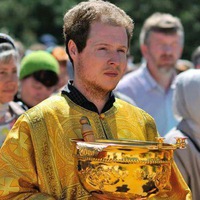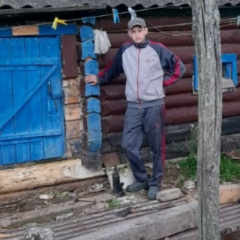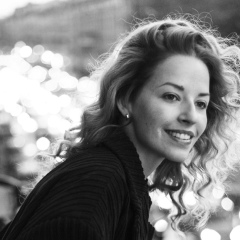Интересный комментарий А. В. Люльки после диспута
Григорий задал вопрос о списке догматов и отцов.
Чтобы не выглядело дело так, что якобы ответить православным нечего, да и ему было что сказать, когда он возвратиться, извольте вспомнить определение догмата. ДОГМАТ - это богооткровенная истина. Это то, что нельзя узнать иначе, чем получив о том откровение от Бога и то, что открыто именно Богом (ибо Богом открыто нам не ВСЁ ВООБЩЕ, а только то, что Он изволил открыть).
Так несложно понять, что список, если и озадачиться составлением такового, будет весьма пространный. К тому же человек может совершить ошибку и что-то упустить. Самый краткий список догматов - это Символ веры. Он, разумеется, не полный, хотя имплицитно содержит и, например, догмат о соединении двух природ во Христе ("воплотившагося... и вочеловечшася" etc).
Список же святых отцов можно увидеть, например, в 3-ем Деянии V Вселенского Собора. Тоже не полный, но на первое время достаточный ????
Вообще же проблемы с осмыслением Православной веры происходит у людей даже весьма начитанных, таких как Дунаев, из-за того, что они не знали или забыли базис - Катехизис, введение в догматику. Если подниматься от азов, изначально сформировать у себя правильное догматическое сознание, никаких проблем не будет. У нас же благодаря лекциям Кураева и Осипова народ начинает богословствовать сразу о сложнейших вещах, не выучив и сотой доли Катехизиса, не прочитав и "Философские главы"...
Григорий задал вопрос о списке догматов и отцов.
Чтобы не выглядело дело так, что якобы ответить православным нечего, да и ему было что сказать, когда он возвратиться, извольте вспомнить определение догмата. ДОГМАТ - это богооткровенная истина. Это то, что нельзя узнать иначе, чем получив о том откровение от Бога и то, что открыто именно Богом (ибо Богом открыто нам не ВСЁ ВООБЩЕ, а только то, что Он изволил открыть).
Так несложно понять, что список, если и озадачиться составлением такового, будет весьма пространный. К тому же человек может совершить ошибку и что-то упустить. Самый краткий список догматов - это Символ веры. Он, разумеется, не полный, хотя имплицитно содержит и, например, догмат о соединении двух природ во Христе ("воплотившагося... и вочеловечшася" etc).
Список же святых отцов можно увидеть, например, в 3-ем Деянии V Вселенского Собора. Тоже не полный, но на первое время достаточный ????
Вообще же проблемы с осмыслением Православной веры происходит у людей даже весьма начитанных, таких как Дунаев, из-за того, что они не знали или забыли базис - Катехизис, введение в догматику. Если подниматься от азов, изначально сформировать у себя правильное догматическое сознание, никаких проблем не будет. У нас же благодаря лекциям Кураева и Осипова народ начинает богословствовать сразу о сложнейших вещах, не выучив и сотой доли Катехизиса, не прочитав и "Философские главы"...
An interesting comment by A.V. Lulka after a dispute
Gregory asked a question about the list of dogmas and fathers.
So that the matter does not look like there is supposedly nothing Orthodox to answer, and he had something to say when he returns, if you please, remember the definition of dogma. DOGMAT is the revealed truth. This is something that can not be known otherwise than having received revelation from God and that which was revealed by God (because God did not reveal to us ALL AT ALL, but only what He deigned to reveal).
So it’s easy to understand that the list, if one is puzzled by compiling one, will be very lengthy. In addition, a person can make a mistake and miss something. The shortest list of dogmas is the article of faith. It, of course, is not complete, although it implicitly contains, for example, the dogma of the union of two natures in Christ ("embodied ... and made human" etc).
The list of holy fathers can be seen, for example, in the 3rd Act of the V Ecumenical Council. Also not complete, but enough for the first time ????
In general, problems with the comprehension of the Orthodox faith occur in people even very well-read, such as Dunaev, because they did not know or forgot the basis - the Catechism, an introduction to dogma. If you rise from the basics, initially form in yourself the correct dogmatic consciousness, there will be no problems. In our country, thanks to the lectures of Kuraev and Osipov, the people begin to theologize immediately about the most complicated things, without having learned even the hundredth share of the Catechism, without having read the Philosophical Chapters ...
Gregory asked a question about the list of dogmas and fathers.
So that the matter does not look like there is supposedly nothing Orthodox to answer, and he had something to say when he returns, if you please, remember the definition of dogma. DOGMAT is the revealed truth. This is something that can not be known otherwise than having received revelation from God and that which was revealed by God (because God did not reveal to us ALL AT ALL, but only what He deigned to reveal).
So it’s easy to understand that the list, if one is puzzled by compiling one, will be very lengthy. In addition, a person can make a mistake and miss something. The shortest list of dogmas is the article of faith. It, of course, is not complete, although it implicitly contains, for example, the dogma of the union of two natures in Christ ("embodied ... and made human" etc).
The list of holy fathers can be seen, for example, in the 3rd Act of the V Ecumenical Council. Also not complete, but enough for the first time ????
In general, problems with the comprehension of the Orthodox faith occur in people even very well-read, such as Dunaev, because they did not know or forgot the basis - the Catechism, an introduction to dogma. If you rise from the basics, initially form in yourself the correct dogmatic consciousness, there will be no problems. In our country, thanks to the lectures of Kuraev and Osipov, the people begin to theologize immediately about the most complicated things, without having learned even the hundredth share of the Catechism, without having read the Philosophical Chapters ...
У записи 11 лайков,
1 репостов.
1 репостов.
Эту запись оставил(а) на своей стене Александр Антонюк






























